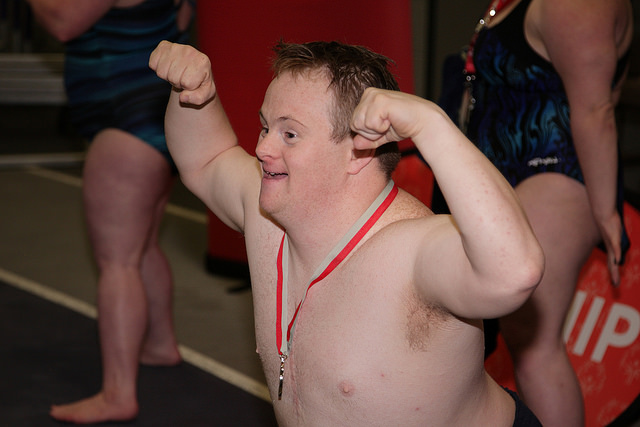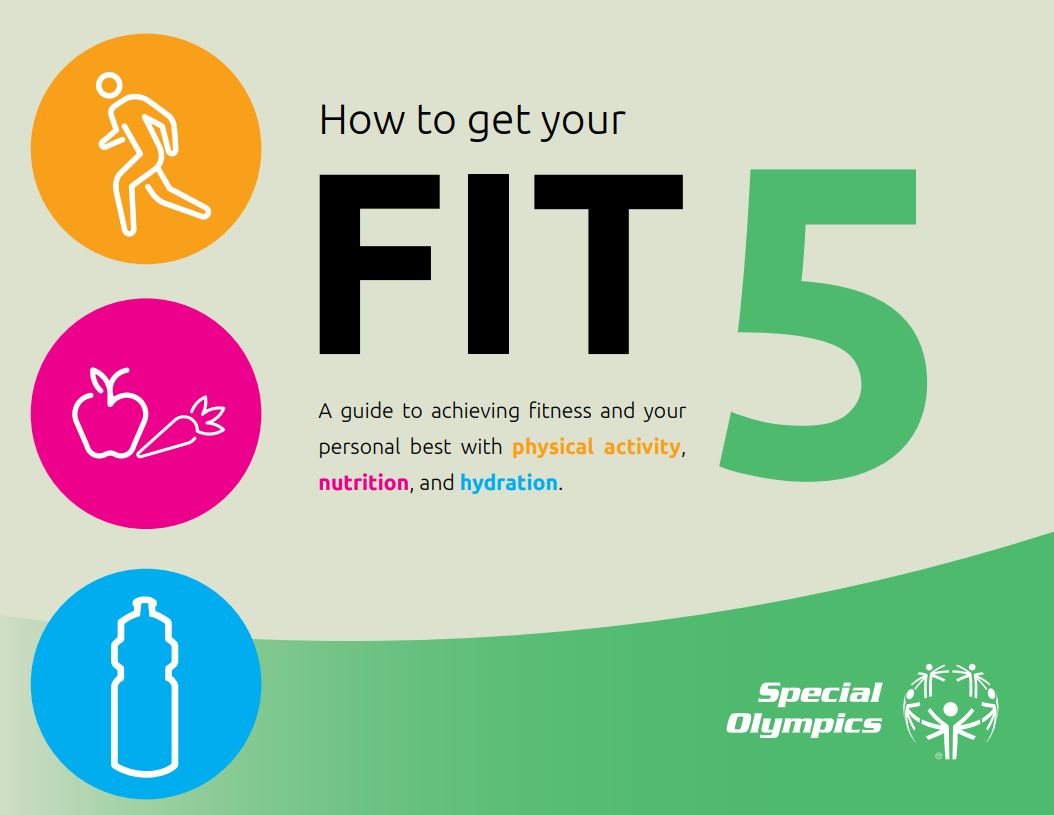Two new Special Olympics Wisconsin studies suggest that its programming may reduce healthcare costs for the state of Wisconsin and that its Fit 5 program leads to better health outcomes for its athletes.
Medicaid study
A study conducted in partnership with the Waisman Center and the Wisconsin Department of Health Services compared Medicaid claims of Special Olympics Wisconsin (SOWI) athletes against individuals with intellectual disabilities (ID) who are not SOWI athletes.
The results of the study indicate that SOWI athletes have fewer trips to healthcare professionals than their non-athlete counterparts. On average, SOWI athletes have 372 fewer medical claims per year than people with ID who are not SOWI athletes. Even more remarkably, SOWI athletes who participate in Healthy Athletes programming have 584 fewer medical claims per year than people with ID who are not SOWI athletes. According to the study, the total cost savings for Wisconsin Medicaid averages about $55 per SOWI athlete per year.
While this research is preliminary and there are still some methods of analysis to undertake, SOWI staff is very encouraged by these results that point toward the health benefits of SOWI participation that may result in fewer doctor visits.
“Although there may be some differences in the findings when we are able to add in controls for things like levels of function, we anticipate that the findings will hold true: that SOWI’s sports and programs lead to improved health for SOWI athletes and reduced healthcare costs for the state of Wisconsin,” said SOWI data team lead, Brandi Niemeier. In addition to working on research and grant writing for SOWI, Niemeier also serves as an associate professor in health promotion at UW-Whitewater.
Fit 5 study
The second study involved the evaluation of an eight-week Fit 5 program. Fit 5 is a tool to help athletes lead a healthier lifestyle and perform at their very best in competition. It is a plan for physical activity, nutrition, and hydration – recommending five days of physical activity a week, five fruits and vegetables everyday, and five bottles of water everyday. Using a comprehensive lifestyle survey constructed by SOWI, the study compared the differences in biometric measures (blood pressure, resting heart rate, and body mass index) for SOWI basketball players who attended practices and also completed Fit 5 activities against SOWI basketball players who attended practices but did not use the Fit 5 program.
Basketball players who participated in Fit 5 displayed a significant 5-point drop in diastolic blood pressure, while basketball-only athletes had a 1.43-point drop. On average, the resting heart rate of the Fit 5 group dropped nearly 2.28 beats per minute in the eight weeks while the control group saw an increase of more than 2.5 beats per minute. And while the control group saw their average body mass index (BMI) increase by .3 percentage points, the Fit 5 athletes only increased their BMI by .038 points.
So while both groups did see increases in BMI, SOWI staff speculate that the overall increase in BMI is due to the accumulation of muscle from training for basketball, while the Fit 5 group appeared to have their BMI increases due to muscle offset by more fat reduction than the control group saw.
While SOWI staff were expecting to see differences between the groups in this study, they were taken aback by the stark contrasts in common health measures over just a short eight-week period.
“The results provide evidence that the Fit 5 program, when implemented during sports practices, will help SOWI athletes achieve significant improvements in their biometric measures,” Niemeier said. “With the blood pressure improvements alone, completing Fit 5 activities could lead to reductions in hypertensive medication requirements for our athletes.”
The studies were conceived by Special Olympics Wisconsin’s data team, composed of several staff members from different departments with an interest in using empirically driven research to assess the impact of Special Olympics Wisconsin’s programming. They were funded through a grant from Special Olympics International that aims to help in assessing the efficacy of Special Olympics’ programs and initiatives.
For future research, the data team plans to use the lifestyle survey to determine how different programs affect the health of athletes. They also hope to look more into athletes’ social and emotional wellness. Additionally, further research is planned with the Waisman Center and the Department of Health Services to control for other variables and do additional analysis in their Medicaid research.




